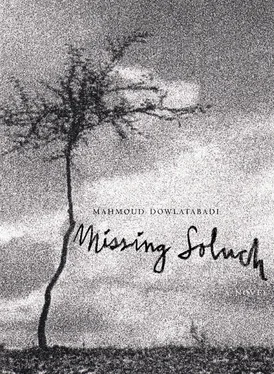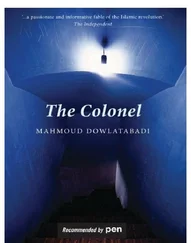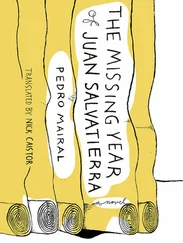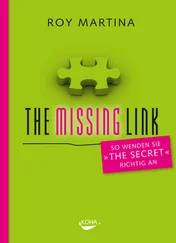“You fool! You’ll kill her, the poor woman!”
The women lift Raghiyeh from where she’s fallen in the snow. The snow is red with blood. The blood still pours from her head. Her shoulder and ankle are also broken. She can’t even cry. Two women, Mergan and Kalati’s wife, take the limp body to Ali Genav’s house. Ali sits on the snow and watches his wife with red eyes. What has happened? It’s as if he is only just realizing what has happened. He cries out all at once, hitting himself in the face and head, and breaks into sobs.
Ali Genav has broken down.
Abbas arrived on the scene; he had been busy gambling with Ali Genav. Often, Abbas and two or three others would start up a game at Ali’s hearth. Ali Genav was one of those people who love gambling. He had brought a set of cards to Zaminej shortly after Agha Sadegh, the shopkeeper. Now, sitting at the edge of the bloody snow, he looked as if he’d lost a round. His dark and broad face, his bruised and thick lips, were yellowing and defeated. His eyes were red, the color of blood. When he saw Abbas, he screamed, “I’m ruined, Abbas!”
Abbas grabbed him under the arms and lifted him from where he had fallen in the snow. Hajer was standing beside the wall. Abbas tossed the shovel beside his sister and said, “Did you light the fire? Go get one ready, as my hands and feet are freezing!”
Hajer took the shovel over her shoulder, and Abbas helped Ali Genav along to Ali’s home. Hajer had already set a fire in the hearth of the home, but the wet kindling still was difficult to light. So the house was again filled with smoke. She arrived first and leaned the shovel against the wall. She sat beside the hearth, leaned onto her hands, closed her eyes, and began blowing. Again, the wood would not catch and nothing but smoke came from the fireplace. Smoke. Smoke. But despite this, there was nothing she could do, she had to blow, because at least the smoke dried the wood a little. If just one spark caught, Hajer could take the tray and fan so much that the fire would spread to all the wood. But there was still not even a spark, so Hajer had to keep blowing. The smoke drew tears to Hajer’s eyes, and it set her nose running. Her lungs filled with smoke, but she still kept blowing. She knew her brothers well enough; if the fire wasn’t ready when they arrived, there was no knowing what might happen. But she understood why, as she could imagine what it would feel like to work for one or two hours in the snow with only tattered shoes and rags wrapped around their feet. Their feet would first sense the coldness, and then they’d begin to freeze. They’d become numb, and then throb with pain. And toes, like babies, can cry — her own toes were also crying right then. Fear — what was stronger in Hajer than anything else was her fear of everyone, and most of all, of her brothers. Not that her mother was less of a worry, far from it. If the fire wasn’t ready, Mergan was unlikely to be more merciful. At the very least, she’d give her a few slaps. So Hajer blew and blew. Either until the fire would catch, or until she collapsed trying.
Abrau threw himself into the house. He was shaking; his teeth were chattering. He tossed his shovel to one side and then sat down. He took off his shoes and unwrapped his feet and brought himself over to the hearth, saying, “It’s not lit yet?”
Hajer kept blowing. Abrau sank his feet into the kindling, but nothing worked. He took his feet out and knelt by his sister with his hands on the ground, blowing alongside her. Finally, in the center of the kindling, slowly a fire was catching. Brother and sister together blew at the spot that was catching. The fire was rising just as Mergan and Abbas arrived. Mergan came straight to the hearth and knelt beside the children. Abbas took his shoes off and joined them. The flames were spreading. There was nothing to say. Abbas knelt beside his mother and blew into the fire. Now all four were blowing without pause. The flame kept rising. The twigs and sticks had dried in the smoke and now were sacrificing themselves in the fire. The warmth of the flames began to spread, and mother and children began to sense it on their faces. The fire had caught, but still they continued blowing. The fire must catch well. A feeling of satisfaction spread; they had defeated the smoke. Once the fire was strong, they drew themselves back. They lifted their hands from the floor, wiped their noses and the edges of their eyes, and sat around the fire. Abrau had his feet up to the flames, so close that the edge of his trousers caught on fire. Mergan threw his legs to one side and smothered the flames. Abbas had a piece of wood in one hand and used it to stoke the fire whenever it weakened. Hajer set the kettle to the side of the hearth.
It was time to find out what Abbas and Abrau had brought home. Mergan wiped the tin tray with the edge of her shirt and set it before Abbas, who undid his belt. He opened his pockets — he had tightened his belt over the top of his pockets. He leaned over to his mother and said, “Empty them!”
Mergan thrust her long fingers into Abbas’ pocket and brought out handfuls of wheat grain. It wasn’t bad. There was about half a man all together. When his pockets were nearly empty, Abbas put his knees on the ground and rose calmly. He looked like a dignified mother cow standing over a milk bucket while being milked; his face was marked with a pleasure approaching arrogance. His face was measured. His eyes were lost in the flames of the fire. His lips were shut, covering his teeth. Abrau’s head was lowered while he glanced at his brother. Hajer, out of Abbas’ view, looked at her brother with an expression full of veneration. Mergan tried to conceal her happiness, but her quick hand gestures and racing heart made it difficult to hide. She scraped the depths of Abbas’ pockets with extraordinary care, extracting from their folds the last grains of wheat. Then she pulled each pocket out and shook it over the tray before neatly reinserting it. She wanted to grab her son’s arms out of happiness and clasp him, but held herself back. Instead, he gave him a little squeeze on his shoulder and said to Hajer, “Bring him a cup of tea.”
Now it was Abrau’s turn. He put his hand beneath his arm and took out a flat cut of bread, placing it on top of the wheat grains on the tray.
“This … is from Bibi Malek.”
After that, he removed a few small coins from the pouch he wore around his neck and said, “And her son Mirza Hassan gave me these.”
Abbas and Mergan both stretched their hands out to Abrau, who placed the coins in his mother’s palm. Abbas’ eyes sparked from the sight of the coins, then went dark. He brought his hand back and said, “I thought I was supposed to buy us molasses!”
Abrau said, “I’ll buy it myself!”
“With your shaking hands? Can’t you see your feet are as red as beet root from the cold?!”
Abbas didn’t continue arguing. He rose and took a container from a cupboard shelf. He put his shoes on and stood over his mother. Mergan couldn’t say no. She couldn’t look at him — he stood so firmly it was as if the coins were already in his pocket. Mergan, who was in the process of wrapping the coins in a piece of cloth, forlornly handed them to Abbas, saying, “Just promise me on your life that you won’t skim any of the money for yourself.”
Abbas walked out the door. The jingle jangle of the coins gave him light feet. Abrau had observed his brother’s exit and then looked at where he had been sitting, then said, “It’s impossible he won’t steal some of it! Abbas would even bite off his mother’s nipple to get a bit more milk!”
Mergan didn’t reply. What could she say? She poured a cup of tea for Abrau and went to bring some oleander seeds. Abrau took the cup of tea, and then looked at the snow that was still piled against the outside wall. He barked at Hajer, “Go clear up that snow from the wall!”
Читать дальше












